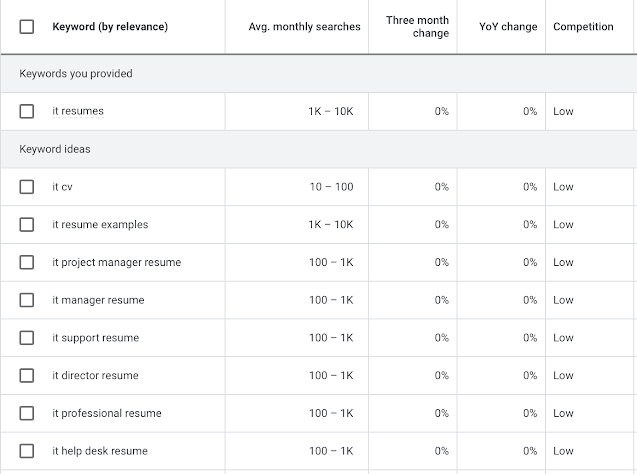I put together this list of advice for getting started. If you’re thinking of starting a resume writing business as a side hustle and you have questions, leave me a comment below or contact me!
Step One: Avoid Conflicts
First step is checking your current contract (if you have one) to make sure there is nothing that prohibits side work. Most important, if you’re doing work that relates to your 9-to-5 job, you want to make sure that you wouldn’t unintentionally be giving your current employer the rights to your side hustle work (or clients). That can really happen.
You also want to make sure that you’re not using company resources for your side hustle. So you wouldn't want to use your work computer for your business, for example. Or, if you have a company-provided cell phone, get a separate one for your business. (That’s smart anyway, so you can answer calls with your business name. “All About Resumes, This is Jan!” Or have your voicemail reflect your business: “Thank you for calling All About Resumes. If you want more information about how we can help you meet your career goals, visit our website, allaboutresumes.com, or leave us a message and we’ll get back to you.)
Step Two: Identify Yourself
Step two is coming up with a business name. You do NOT need to incorporate as an LLC at this point. It’s not necessary and is a lot of paperwork and expense that isn’t required.
This article explains why:
As a small services business (under $100K in revenue to start), your legal liability risk is low. If you want to shield yourself, an E&O policy (errors and omissions) would be sufficient (and probably overkill). If you do choose to pursue E&O insurance, check out Hiscox or your homeowner’s insurance. (If you’re seeing clients in person at your home or an office, also ask your homeowner’s agent about a business liability policy.)
Get an EIN from the IRS:
Here’s how to get one (it’s free):
Step Three: Establish Your Business
The next step is opening a business checking account. All your income and expenses should be run through this account. It can be as simple as “Your Name dba as ___” (dba = "doing business as"). My first sole proprietorship was “YD Creations” (my maiden name is pronounced “Why Dee” — like the letters Y and D). So my bank account was “Bridget Weide dba YD Creations.”
Start as a sole proprietor. Your income and expenses will be reported on your personal tax forms.
Register your business with the state. Google “start a business in ___” (your state).
For example, I live in Nebraska:
https://www.nebraska.gov/osbr/index.cgi
You also want to check into whether you will need to collect sales tax on your sales.
Your state’s department of revenue can help you identify the specific services that are taxable.
Again, here’s my state’s guidelines:
This is especially important if you are providing taxable services. In some jurisdictions, resume services are taxable. In others, they aren’t. Sometimes they are taxable if it leads to the creation of a physical product (resume printouts) but not digital files. It’s important to get this right from the beginning, so don’t skip this step.
You may also need to register your business with your local city or municipality. Check to be sure.
Step Four: What Will You Sell?
Next is figuring out what services you are going to offer and your pricing for each. Will you provide resume development only, or also provide interview coaching? How about salary negotiation services? Career coaching?
Will you bill by the hour, by the project, on retainer, by results generated, or other?
Step Five: Getting Paid
The next step is figuring out how you will accept payment. You may want to set up a Square account (or similar third party service). Your bank may use Zelle but your customers would need to also. You probably don’t need a credit card (merchant account) at this point. Keep your expenses low to start.
Step Six: Now It’s Time to Make Yourself Known
The final step is all about marketing. Register your business domain (www.____.com). Set up an email (and website, probably). Register your social channels if you’re going to use them. Put the word out to your network and contacts that you’re “open for business.” Reach out to anyone who had inquired about you doing work for them in the past.
Starting a business can be daunting, but starting as a side hustle can give you the security of your regular paycheck with the ability to start growing your business on the side. These six steps will help ensure you get off on the right foot.
And someday, when you’re ready, you can make the leap to being a full-time career services professional (if you choose to!).




